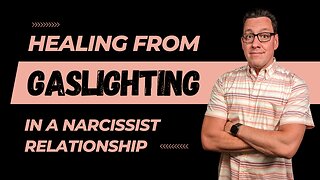#ARABELLAROSEXXX
#pornolife
#UnfilteredLife
#sexualhealthawareness
#parentalalienationawareness
#consentmatters
The term "nypho" is a misspelling of "nympho," which is an abbreviation of "nymphomaniac." A nymphomaniac is someone who has an excessive and uncontrollable desire for sexual activity or behavior. It is important to note, however, that the term "nymphomaniac" is considered outdated and stigmatizing, and is not widely used in modern clinical or scientific contexts. Instead, the term "hypersexual disorder" or "compulsive sexual behavior disorder" is often used to describe a pattern of problematic or excessive sexual behavior. It's also worth noting that a person's sexual desires and behaviors should not be judged or stigmatized, as they are a normal and healthy aspect of human sexuality when practiced consensually and respectfully.
It's important to note that there is no universally agreed-upon definition of what constitutes an "unhealthy sexual appetite," as everyone's sexual desires and behaviors are unique to them and can vary greatly. However, here are five indicators that might suggest problematic or unhealthy sexual behaviors:
1. Compulsive behavior: If a person feels compelled to engage in sexual activities despite negative consequences, such as relationship problems, legal issues, or negative effects on their mental or physical health, this could be a sign of a problem.
2. Lack of control: If a person feels unable to control their sexual urges and engages in sexual activities despite not wanting to, or despite trying to resist, this could also be a sign of a problem.
3. Risky behavior: If a person engages in sexual activities that are risky or dangerous, such as unprotected sex, sex with multiple partners without disclosure, or engaging in sexual behaviors that could lead to physical harm, this could be a sign of unhealthy sexual behavior.
4. Negative emotions: If a person experiences negative emotions such as guilt, shame, or anxiety related to their sexual behavior, this could be a sign that their behavior is problematic.
5. Interference with daily life: If a person's sexual behavior interferes with their ability to function in their daily life, such as causing them to miss work or neglect responsibilities, this could also be a sign of problematic sexual behavior.
It's important to remember that these indicators alone are not necessarily indicative of a problem, and that everyone's sexual desires and behaviors are unique to them. If you are concerned about your own sexual behavior or that of someone you know, it may be helpful to seek out the guidance of a qualified mental health professional.
iusemethamphetamines.food.blog
https://rumble.com/user/TheRealJessicaBailey
-
 11:27
11:27
BELLAROSE505
1 year ago#ARABELLAROSEXXX
1491 -
 0:39
0:39
VigRX Official Store
1 year agoThe Definitive Guide to "Is VigRX Plus a Safer Alternative to Viagra? Let's Find Out!"
46 -
 1:07
1:07
VigRX Official Store
1 year agoSome Known Questions About Which is More Effective? A Breakdown of VigRX Plus and Viagra.
49 -
 26:15
26:15
Teacher | Author | Coach
1 year ago $0.03 earnedHave You Been Slimed by a SCORNER?
2863 -
 0:43
0:43
VigRX Official Store
1 year agoRumored Buzz on "Natural vs Synthetic: Comparing the Ingredients of VigRX Plus and Viagra"
89 -
 0:57
0:57
VigRX Official Store
1 year agoSome Known Facts About "VigRX Plus vs Viagra: Which is the Better Choice for Erectile Dysfuncti...
88 -
 40:12
40:12
Teacher | Author | Coach
1 year ago $0.03 earnedHealing from Gaslighting
6333 -
 28:35
28:35
Behind The Berry sponsored by Modexus
1 year agoBehind The Berry with Ashlee Thorbecke- Modexus Superior Nutritional Supplements
222 -
 0:53
0:53
VigRX Official Store
1 year agoGetting The Side Effects of VigRX Plus vs Viagra: What You Need to Know To Work
96 -
 5:39
5:39
Dr. Eric Berg
1 year agoThe #1 Cause of Painful Intercourse (Dyspareunia)
1.1K